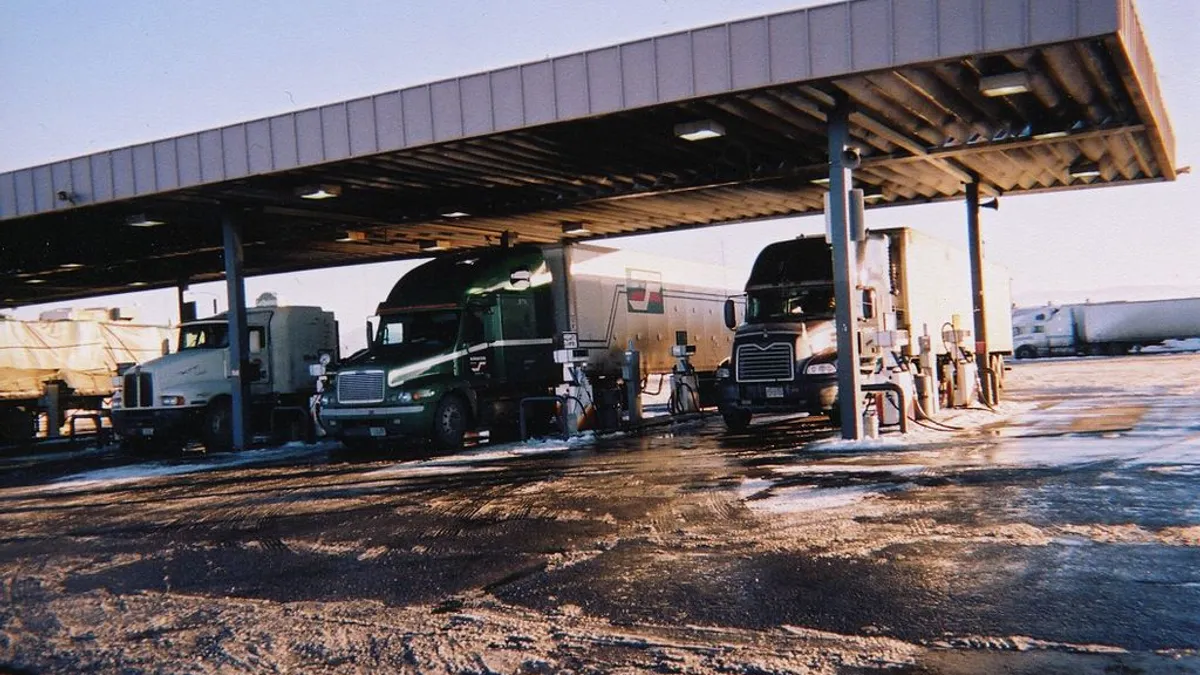Dive Brief:
- After months of beta tests, a Twitter teaser and and autonomous beer-run, Uber Freight is now available for Android and iPhone users nationwide, according to a company Medium post.
- The application seeks to match carriers with cargo, much like a load board, but replace broker activities including check-ins, price negotiations, payment and load calls through its technology.
- The company claims its competitive advantage will be its treatment of drivers, as the application purportedly offers rapid payment (a few days) and uses the app's GPS to provide real-time cargo information. In the case of disputes, missed loads or delays, Uber Freight also offers "accessorial rates" in compensation.
Dive Insight:
Uber has long been a big name in trucking, as its ride-share model has inspired many "Uber-for-X" companies to enter the market, seeking to disrupt the broker model of cargo shipping.
High capital allure and a seemingly ripe-for-disruption business model have yet to prove successful for a handful of companies which, several years in, face a reasonable level of skepticism from the industry. It's a relationship business, some would argue. Cargo is too valuable to risk, others add. Apologetics note the industry may just be too fragmented, or a very slow adapter. Regardless, the promise of Uber-for-Trucking has yet to materialize into a major disruptor. If that's the case, does the ubiquitous company type's namesake have a chance?
Potentially. Uber Freight has a few things in its favor that its competitors do not.
First, the company is more of a giant than a startup now, having launched itself into the grocery space after succeeding in the passenger transport sector. As a result, deep pockets could help the company continue to improve its service despite a potentially tough market entry period.
Second, name recognition may go a long way. Its competitors have marketed themselves as Uber-for-trucking company "X," but this is just Uber Freight. For shippers and drivers accustomed to load boards, the concept is hardly tough to explain.
Lastly, the company appears to be targeting small businesses and owner-operators as its gateway to the freight market. The app boasts its payment and administrative relief benefits and placing shipments on load boards, making the owner-operator experience seamless. It also offers dynamic prices to reward drivers when supply is low while offering shippers contract prices. If the company can tap into the owner-operator market, Overdrive reports, it may have a formidable market of drivers for shippers in need.
Various doubts remain as to the app's feasibility in the existing freight market, considering previous experiments and industry norms. Regardless, Uber Freight offers a compelling reason to watch its development: If it succeeds, it may disrupt the industry's modus operandi, as so-often promised. But if it fails, it could turn the hype to a fad and doom its fellow marketplace startups.
All eyes are on the tech giant, again.














